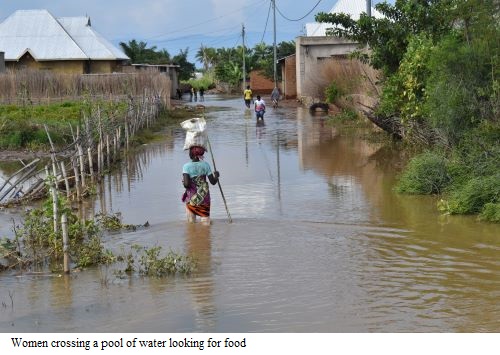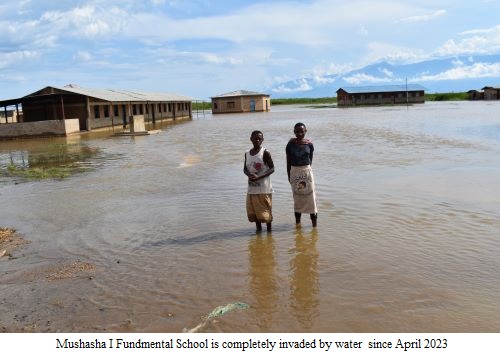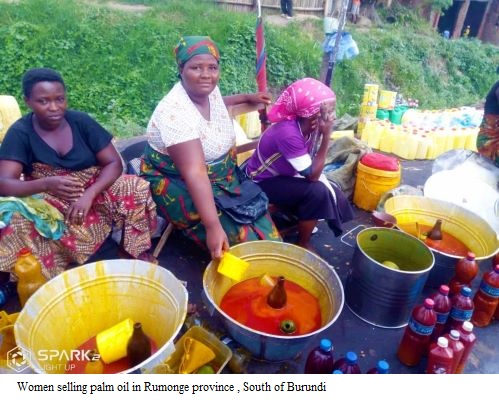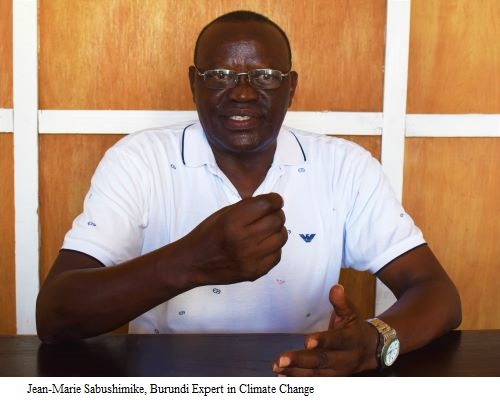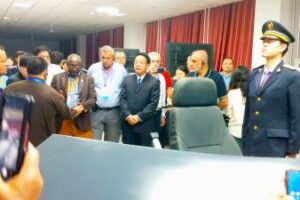By Gaspard Maheburwa
Gatumba flood in Bujumbura province registered more than two years ago left entire families in devastating conditions. Living in refugee camps and fighting for survival, women and children were the most affected. Statistics provided by Unicef Burundi show that for the period between 2019 and 2020 , climate change caused daily school disruptions for over 1 10 000 children in 1 609 schools. During 2021-2022 school year more than 1 500 classrooms were destroyed by bad weather.
Unicef reports that the vulnerability of women and their children is real as it will be difficult for them to ensure that their families have access to minimum services if they do not have access to an income or at least a piece of land to cultivate. This situation is even complicated for single mothers or widows who are self-dependent. We find this situation in another side of the country the Rutunga flood in Rumonge province nearly 10 years ago left families with severe challenges .To survive , men prefer to flee away looking for income generating activities and women invest in small businesses to feed their families. Furthermore, thousands of classrooms are destroyed by bad weather and children wander up and down in refugee camps looking for small jobs to survive.
It’s ten o’clock in Gatumba refugees camp. The sun is intensive and the sky clean in the middle of may 2023. On different sides , people are moving with house tools. Some of them are carrying their material on their heads, some others hold heavy utensils on their arms.
With fear of being taken by the flood to the other side of Lake Tanganyika, groups of men are using small boats to flee away with their families towards secured areas. Children are crying. No school , no teacher. Everyone is busy in escaping from the flood. So nearly , a mass of water is flowing to our side. The Rusizi river is angry and decided to invade every area it reaches.
Taking source in the eastern part of the Democratic Republic of Congo with combination to other streams from Burundi and Rwanda , the Rusizi river reaches the Imbo plain as a moving lake as possible damaging every corner of the site.
We quickly run to another area to escape. A young woman, two children in arms, one in her back and a heavy package of pans and clothes marching difficultly through high speed water cries : « Hey ,hey ,please do not leave me here alone. Where are the men to save me from this punishment ? ». In any rate , the situation is bad and thousands of lives are under threat.
Jumping too many well water , we feel ourselves in a so-called secure area. Two hundreds people at least have taken refuge there. Adults and children are in desolation.
Children are seriously touched
Moïse Nzambimana , is a young boy in 6th Form at Mushasha I fundamental school. He is 11 years old. He says Rusizi river invaded their house together with his school. Everyone was obliged to go to a refugees camp in that area. This camp is there not because the country is at war but because of climate change.
« We are now living in the refugees camp over there.The sorrowful thing is that my father has a second wife who does her best to illtreat us even before flood. You understand that we live in very bad conditions », said Nzambimana. When he pointed the refugees camp, his eyes were full of tears.
Flood has execerbated people’s living conditions. According to Refiefweb ( https://bit.ly/3BPjj7m ), 91 percent of displaced are due to natural hazards and estimated 50,149 houses were damaged due to climatic events between January 2018 and October 2022.
Back to Nzambimana , he says that to survive , him and his young brothers must beg in roads with many consequences this can bring.
The young boy indicates that his school has been totally invaded and there are no more classes because there is no access. « If things continue in this way, there are many risks to abandon school completely because we don’t have the needs for our studies »
Other children we met on the site share problems with Nzambimana. They stated that they live in bad conditions with an extreme minimum of hope to survive.
Evelyne Kwizera is also a 12 years old young girl met in Samariro quarter in Gatumba. She says they are seven children in family and studies at Mushasha I Fundamental school. She added they live in a small shelter and the risks of being attacked by malaria and cholera are evident.
The complain of those children is strenghtened by different reports. According to Unicef , natural disasters and other climate-related crises expose children to hazards , increasing their vulnerability and need to be considered for protection measures. The consequences of natural disasters force many children to leave their homes behind and expose them to various risks of exploitation.
Climate change socio-economic impact to women
Women suffer from the consequences of a warming planet more acutely than their husbands , brothers and fathers.
Women who are abandoned by their housbands may also face some economic difficulties. It’s like Fatuma , an habitant of Gatumba, Bujumbura province , as indicated by Romain Laëtitia of International Organisation for Migration, who has been displaced in 2021 because of destructive floods in Gatumba. This woman , when she came back from Saudi Arabia in early 2021 , after having endured months of exploitation and gender- based violence from her employer, she found that her housband left her with their three children.
Romain mentions she could hardly afford to feed them anymore , while the floods left her with no house , goods and land to cultivate. She was then , forced to move with her children to an emergency shelter for displaced people where they sought refuge together with thousands of others. There, Fatuma made a business from support of NGO and had a hope to see it improving.
This is a reality for men as well.
Habonimana Roger is a young man from Vyerwa in Ngozi province, Northen part of Burundi. He moved abroad in Kenya because of climate change consequences.
« It does not always take a right way when you are abroad. But because you send money to your family , there is a permanent communication and this can help you consolidate your family », says Roger.
During our report, we met Solange Harushimana , another woman displaced in Maramvya , Mutimbuzi Commune ,province of Bujumbura, because of the Gatunguru floods in 2013. This three children mother regrets : « Since my house and goods have been destroyed by floods , I have not seen my husband again . I don’t know where he is but one of his best friends told me that he should be in the DRC. I’m not sure if he is alive ».
She says she lives in very bad conditions with children and must work in rice fields belonging to other people to survive.
Athanasie Ndayishimiye , displaced from Muyange I in Gatumba since April 2023,lives in a hut. When it is night only children sleep and she spends a night in standing position. She sells soya bean and peanut to survive because her husband can’t be found easily while he is looking for a job to get fees for his family.
Fatuma, a 93 years old woman deplores bad conditions in which she lives in Gatumba refugees camp. « I have no more energy to work. Then it is very difficult to find food. Even if I chose to beg , no one will give me because I must wait for passengers »
Eliane Irakoze is in the same situation. She says things turn bad in Gatumba. To survive , she says she difficultly finds small jobs to get money for food.
Anyway, considering the state of facts , there is a need to invest in women to help them survive despite their current situation in refugee camps because of climate change. The World Bank report in 2021 indicates that with the right institutions and policies in place gainfully employed youth including young women , can increase country’s capacity to save and make investment in physical capital.
Administrative leaders regret climate change consequences
The head of quarter Kinyinya I in Gatumba , Augustin Hakizimana , says people are in difficulties.
« We need partners to help us. We mainly need food, shelters , cooking utensils and clothes », he says.
He deplores the fact that women and young girls in the sites can be sexually violated . »While sleeping , washing their bodies and making clothes in their huts, risks of being sexually violated are enorme » . He adds that prostitution cases may also increase. He shares this concern with Patrick Nduwimana , the head of MuyangeI site who estimates that living in bad conditions like the ones in which they are now , women and young girls can be led to prostitution.
This site hosts 382 persons in general forming 102 households among them 88 men and 78 women together with 216 children whose 111 girls and 105 young boys.
Experts concerned by climate change consequences to women
Burundi National cartography shows that catastrophs related to climate change are the major cause of more than 90 percent of displaced people in Burundi and this country is, according to the same cartography, one of the most 20 vulnerable countries to climate change in the world. Women and children are not saved.
UNDP reports that women are regarded as vital stakeholders in all sectors of national life. As mothers,and main educators ,women play an important part in the determination of future Burundi.
A study conducted by Search for Common Ground Burundi in 2020 shows that respondents believe the ideal women should help and obey their housband ( 48% ) and stay at home to take care of the house and theirchildren (24%)
Experts say women are exposed to many dangerous problems depending on climate change. Jean-Marie Sabushimike is an environmental and climate change expert. According to this geomorphologist and universities lecturer in terms of climate change , human being are much touched.
« Women are primarly considered as victims and actress especially in our underdeveloped countries. Children and oldmen are also categorized while talking about climate change ». This is while women’s vulnerability, according to UN Chronicle, to climate change stems from a number of factors like social , economic and cultural ones. The same journal indicates that seventy per cent of the 1.3 billion people living in conditions of poverty are women.
Professor Sabushimike deplores the fact that climate change impact causes population massive displacements and in dispalced people camps the first victims are women who are sexually violated , for instance.
According to this expert , children ,women and old men are victims of all illnesses such as malaria , dysentery. In addition to this illnesses, women are subject to be abandoned by their husbands , in some cases , because of the promiscuity or the irresistible envy to go to search for other jobs.
On the other hands, other Environment activists say people make movements to avoid climate change consequences and women are the first victims of environment degradation and when climate change intervenes, people will always pay the cost but women and children will pay the most .
In this angle , Professor Sabushimike indicates that climate change provokes displacements which lead to family separations. « It happens and geographic celibacy is observed in many situations because of climate change ».
He recalls a testimony by a young woman who says that during natural catastroph in Gatumba , while flying away , the housband took his way , wife ( that woman) and chilren took theirs.
« Those situations are to be watched very carefully because households are destroyed not only physically but also morally because of climate change impacts », adds professor Sabushimike.


